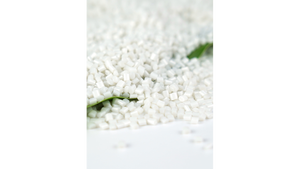Foster Corp. introduces heat- and light-stabilized medical-grade PEBA
Like many polymers, polyether block amide (PEBA) copolymers can degrade over time, which may lead to functional failure. This is especially problematic in medical applications, notably in catheters. To prevent degradation of stored devices caused by exposure to heat, light, or other environmental factors, Foster Corp. (Putnam, CT), a supplier of custom polymers for medical devices, has introduced heat- and light-stabilized PEBA copolymers.
April 4, 2014
Like many polymers, polyether block amide (PEBA) copolymers can degrade over time, which may lead to functional failure. This is especially problematic in medical applications, notably in catheters. To prevent degradation of stored devices caused by exposure to heat, light, or other environmental factors, Foster Corp. (Putnam, CT), a supplier of custom polymers for medical devices, has introduced heat- and light-stabilized PEBA copolymers. Foster's HLS formulations are manufactured from medical-grade Pebax polymers and USP Class VI–compliant additives for use in medical device applications such as vascular catheters.
 "Shelf life is a necessary consideration for regulatory approval and commercial sale of medical devices," Foster Corp. CEO Larry Acquarulo told PlasticsToday. "Catheters are highly flexible devices that may lose critical properties in storage over time. Degradation is of greater concern for catheters that are expected to be in storage for longer periods of time or exposed to excessive light and heat," he added. Consequently, Foster has developed a targeted stabilizer system that can both decompose and neutralize the free radicals created by exposure to oxygen, heat, and UV light that would otherwise initiate the loss of polymer properties.
"Shelf life is a necessary consideration for regulatory approval and commercial sale of medical devices," Foster Corp. CEO Larry Acquarulo told PlasticsToday. "Catheters are highly flexible devices that may lose critical properties in storage over time. Degradation is of greater concern for catheters that are expected to be in storage for longer periods of time or exposed to excessive light and heat," he added. Consequently, Foster has developed a targeted stabilizer system that can both decompose and neutralize the free radicals created by exposure to oxygen, heat, and UV light that would otherwise initiate the loss of polymer properties.
In two studies recently conducted by Foster, HLS 2533 MED demonstrated substantial long-term property retention compared with a nonstabilized PEBA medical grade. Following six months of exposure to multisource indoor light, HLS 2533 MED test samples retained 99% of their tensile strength, whereas the nonstabilized PEBA samples demonstrated severe degradation and property attrition after three months of light exposure, according to the company. In a separate study, samples were exposed to 131°F (55°C) for 32 weeks to simulate aging for five years at 77°F (25°C). The HLS samples retained 99% of their tensile strength compared to 78% of the nonstabilized PEBA samples.
Foster Corp. will exhibit at MD&M East on June 10 to 12, 2014, at the Jacob K. Javits Convention Center in New York, NY. The medical manufacturing exhibition and conference is co-located with PLASTEC East. |
"The HLS system helps maintain integrity of the base resin by minimizing unanticipated changes in chemistry and molecular weight caused during certain storage conditions," explains Bill Blasius, Manager of R&D and Polymer Science for Foster Corp. "These changes may affect material properties and performance of a device component. Minimizing such changes is important for devices that may be in storage prior to use," says Blasius.
The manufacturer of Pebax offers heat and light-stabilized polymers, but they are only available for nonmedical use, says Acquarulo. "This was the reason Foster developed grades specifically for medical devices," he adds.
The materials are available for use with injection molding and extrusion processes.
Norbert Sparrow is Senior Editor at PlasticsToday. Follow him on twitter @norbertcsparrow and Google+.
About the Author(s)
You May Also Like




